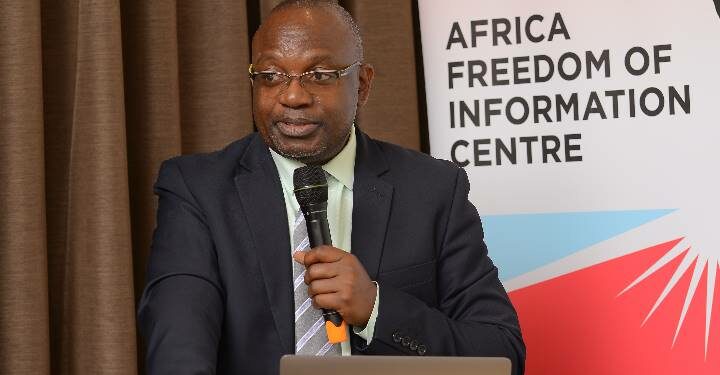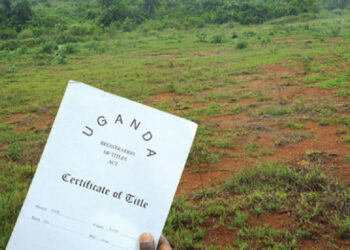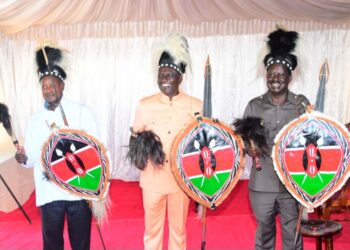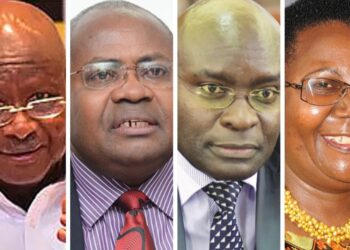Police have been urged to leverage the powerful tool of the media to build sustainable trust among citizens in Uganda’s electoral processes, as a remedy to voter apathy during elections period.
This holistic approach towards perpetuating voter confidence in the operations of the Police and the National Electoral Commission (EC) was suggested by Mr. Gilbert Sendugwa, the Executive Director for Africa Freedom of Information Center (AFIC), during the Training on Freedom of Expression, Access to Information for promotion of free and fair elections in Uganda, which took place at Skyz Hotel Naguru, Kampala on July 11th, 2023.
“One of the things that should be done like during this time when things are quiet, invite the media in your different offices, district, regional and inform the public, political parties you come and see, people are saying this okay, this is where, this is what we are doing in preparation for the next elections,” Mr. Sendugwa advised.
“Give us information that can help us to improve the process, I think those confidence building measures could help and also reassure some people who may be thinking that this process is already concluded,” he added.
The three-day training organized under the auspices of AFIC in close collaboration with United Nations Educational, Scientific and Cultural Organization (UNESCO), United Nations Development Programme (UNDP) and other stakeholders in Uganda was attended by several electoral stakeholder groups, including personnel from Uganda Electoral Commission, Uganda Human Rights Commission (UHRC), Uganda Police Force, representatives of Political Parties, the media, Civil Society Organizations (CSOs) and the Judiciary, whose presence was vital in discussing issues at hand.
The training was tailored towards reflecting on what happened in the previous elections majorly the 2021 Presidential and Parliamentary run-offs, learning from them, to increase access to information on elections, on top of minmizing acts of pre, during and post election violence. It was also aimed at suggesting ways of building voter confidence in the electoral systems of Uganda, which is a remedy to unconstitutional ways changing leadership.
It should be noted that Mr Sendugwa’s appeal to the Police and the national political body echoed Mr. Eddy Fredrick Kasajja’s complaints about the operations of the the Electoral Commission and Police, during the election period.
Kasajja, who is the Deputy Secretary General of Justice Forum (JEEMA), had earlier in the day supplied a neat link between extremely low participation of citizens in the country’s electoral processes and lack of trust in the system, due to acts of violence and muzzling of people’s freedoms allegedly by the Police and the EC, whom he accused of puppetism to the ruring authorities.
“Participate, participate in what? Hasn’t police beaten us, haven’t you undermined us…….voter apathy will continue, even in 2026, Mr. Kiyingi my good friend, in charge of political parties, you have a lot of ground work to entice Ugandans to vote, because they know. They know what they go through,” Mr. Kasajja charged.
Worth noting, Kasajja’s angry response was sparked off by concerns raised by Mr. Samuel Kiyingi, the EC head of political parties, who decried the growing voter apathy. He mantained that citzens who are intentional on determining who to occupy political offices must take part in the voting process.
“Many people don’t want to participate in elections, they say, a certain political party has been in power for a long time. If you are to ask here, who votes, most of you don’t want to participate in elections, and then they say a certain political party is in power for a long time. But if you don’t participate, who will participate… As I conclude, participate, participate and lastly, participate. The elections are not for me, they are for all of us,” Mr. Kiyingi implored citizens.
Also while delivering her remarks, Ms. Sylvia Adongo, who represented the regional advisor for UNESCO on Communication and Information Ms. Misako Ito decried lack of transparency and accountability, which she said has rocked African electoral systems for decades.
She noted that in most cases, citizens are not informed on key issues such as appointment of members of election management bodies, information on registration of voters, nomination of candidates, conduct of campaigns, funding of political parties and candidates.
Ms. Sylvia also noted that polling, counting, transmission and also the declaration of winners have often been scarred by a lot of lack of transparency and lack of reliable information on such aspects, which affects voter turnout, hence undermines the credibility and legitimacy of the outcomes of electoral processes and affect citizens ability to hold accountable their elected leaders, which undermines democracy.
To remedy this she said, UNESCO through the Strengthening Electoral Processes Project in Uganda, (SEPPU) has been enhancing capacities of local actors, towards inclusive participatory and transparent elections, through enhancing capacities of electoral commission and other stakeholders to promote peaceful, credible and also violence free elections.
It should be noted that Uganda has had a dark past in relation to electoral processes characterized by misinformation, disinformation, gross violation of human rights against different political actors, internet shutdowns and closure of media houses, which tantamounts to election violence.
Against this background, AFIC in close collaboration with key allies saw it wise to organize this training, premised on assessing what happened in the 2021 Presidential and Parliamentary elections, learning from them and forging a way forward to perpetuate access to factual electoral information and violence free elections in the future.
Do you have a story in your community or an opinion to share with us: Email us at editorial@watchdoguganda.com













